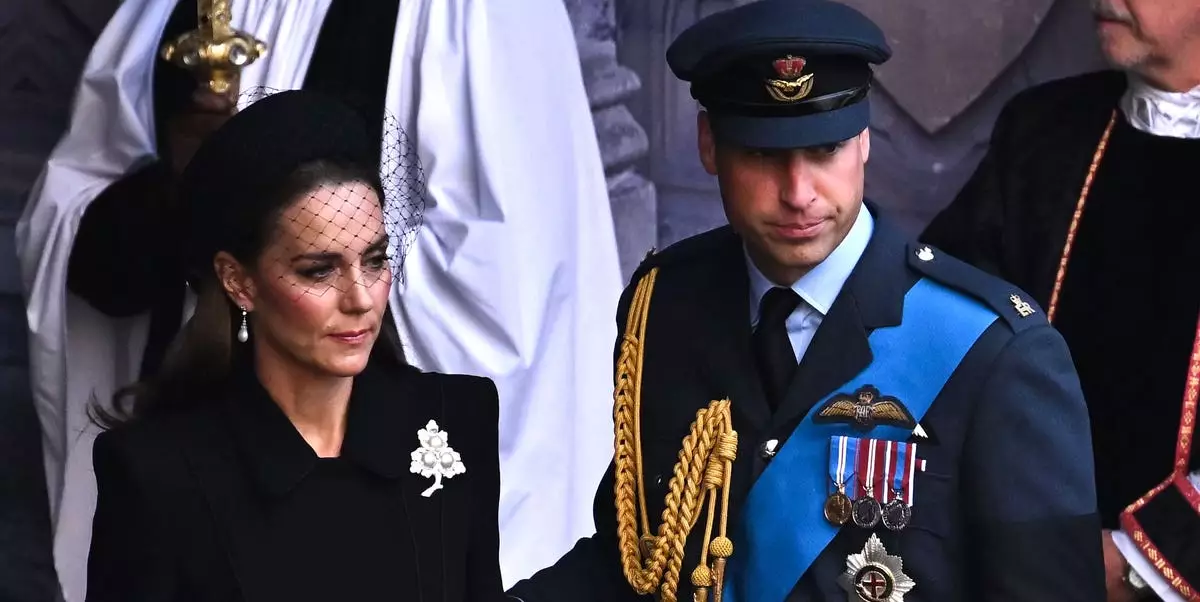On April 26, 2025, Prince William took the significant and poignant step of attending Pope Francis’s funeral, a role typically reserved for the reigning monarch, King Charles III. Instead of his father, the Duke of Cambridge honored the late Pope on behalf of the royal family at St. Peter’s Basilica in Vatican City. This decision highlights a fascinating interplay between royal protocol, familial responsibilities, and the profound respect the monarchy holds for global figures like the Pope.
Royal family representatives do not simply attend; they are embodiments of national sentiment and tradition. William’s presence at such a significant occasion attests to the respect and somber acknowledgment of Pope Francis’s impact on millions worldwide. Engaging directly with the solemn atmosphere of the Vatican rather than leaving such duties to the King illustrates a subtle shift within royal traditions.
The Implications of Absences and Protocols
Kate Middleton’s absence alongside her husband sparked some intrigue, albeit not unexpected. Historical precedents, similar to those when then-Prince Charles attended Pope John Paul II’s funeral without Camilla nearly two decades prior, signal a deeply-rooted adherence to royal customs. This complex dance of protocol offers insights into how the monarchy operates in times of global mourning and the intimate boundaries surrounding their public personas.
The absence of the reigning monarch from such a key religious ceremony raises eyebrows yet underscores the rigid nature of royal protocols that govern such situations. The Buckingham Palace clarified that King Charles III’s choice to refrain from attending the funeral was dictated by longstanding traditions, which state that the sovereign does not attend funerals. This decision channels both respect for tradition and a modern interpretation of representing the institution without undermining its gravitas.
A Legacy Honored by a Generational Shift
Buckingham Palace’s messaging following Pope Francis’s death reflects a blend of personal sentiment and public duty. Charles’s heartfelt tribute noted the late Pope’s compassion and commitment to the church and global justice, reinforcing his own suitability as a figurehead. The acknowledgment that the royal family had direct interactions with Pope Francis adds a personal layer; it wasn’t merely a formal announcement but a genuine expression of loss.
As William stepped into this role, it demonstrated the generational shift taking place within the royal family. The younger generation, represented by William, shows a willingness to engage with pressing global issues and deepen the royal family’s connection with contemporary society. It’s as if William’s participation serves as a bridge between a time-honored monarchy and the contemporary values that resonate with the public today.
The Significance of Spiritual Leaders in a Global Context
Pope Francis, who passed away at 88, left behind a legacy that transcends religious boundaries, advocating for the marginalized while promoting ecological stewardship. The reaction following his death reverberated across nations, prompting leaders to reflect on their relations with the church and delve into broader dialogues concerning morality and social responsibility.
Prince William’s attendance at the funeral symbolizes more than just a royal duty; it underscores the vital role that spiritual leaders play in shaping contemporary discourses about faith, morality, and humanity’s collective aspirations. By being present, William lent royal influence to these discussions, knowing full well that the movement of ideas often begins with symbolic gestures of respect and acknowledgment.
A Call for Reflection in a Changing World
Engagement with such solemn occasions sets a precedent for future royal actions in an increasingly interconnected world. The moral weight of attending Pope Francis’s funeral extends far beyond simple respect; it reflects a commitment to solidarity in shared human experiences. The loss of a leader like Francis compels reflection on the contributions of such figures in navigating complexities of faith and responsibility.
As we process the implications of these actions, the royal family’s approach to mourning, allegiance to tradition, and evolving public relationships invite us all to consider the significance of spiritual leadership in a modern context. With conversations surrounding morality, social justice, and collective responsibility at the forefront of global discourse, these events remind us that the foundations of respect run deeply within the traditions of both monarchy and faith.

